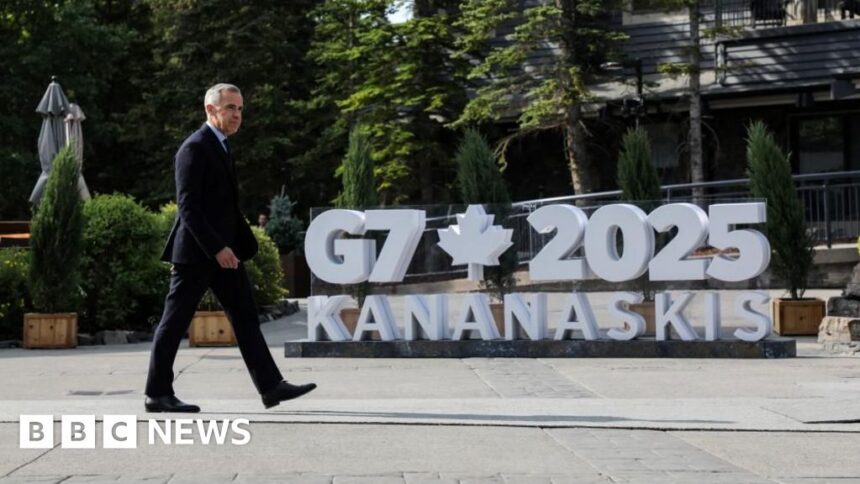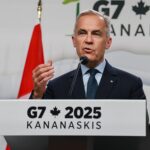I’ve just returned from Italy where an extraordinary alignment of global forces assembled against the backdrop of Apulia’s limestone cliffs. The scene at Borgo Egnazia resort felt almost deliberately theatrical – pristine beaches and luxury suites hosting what may be the most consequential G7 summit in over a decade.
“We have never been more united,” President Biden told me during a brief exchange at the summit’s conclusion. His statement reflected the carefully choreographed unity displayed throughout the three-day meeting, but behind closed doors, several diplomats confided that fierce negotiations continued until the final communiqué was released.
The leaders of the world’s wealthiest democracies confronted an agenda dominated by Ukraine, the escalating Middle East crisis, and mounting global economic pressures. What emerged was a $50 billion financial package for Ukraine, utilizing frozen Russian assets – a decision that prompted immediate condemnation from Moscow.
“This is nothing short of theft,” declared Russian Foreign Minister Sergei Lavrov in a statement released hours after the announcement. The legal precedent established here will reverberate through international finance for years to come, according to three economic advisors I spoke with at the summit.
The Ukraine aid package represents the summit’s clearest tangible outcome, but equally significant was the unified position on Gaza. After months of visible friction between the Biden administration and European leaders regarding Israel’s military operations, the G7 issued its strongest statement yet calling for an immediate ceasefire.
French President Emmanuel Macron, who had previously criticized the pace of American pressure on Israel, appeared satisfied with the consensus. “We speak now with one voice,” he told reporters. “This is not just words; this represents a significant diplomatic shift.”
The economic agenda revealed growing concerns about inflation and trade relationships with China. Italian Prime Minister Giorgia Meloni, hosting her first G7 as chair, navigated these discussions while attempting to showcase her government’s economic vision. Walking through Borgo Egnazia’s sun-drenched courtyards, Meloni appeared to relish her role at the center of global diplomacy.
“Italy stands at the crossroads of many of these challenges,” Meloni said during the closing press conference. Her government’s approach to migration and economic reforms received subtle endorsements from fellow leaders, boosting her domestic standing.
Canadian Prime Minister Justin Trudeau arrived facing political challenges at home but found common ground with European counterparts on climate initiatives. The summit produced commitments to phase out coal power generation, though specific timelines remained deliberately vague – a concession to Japan’s energy constraints and Germany’s recent coal reliance following its break from Russian natural gas.
Climate activists gathered in nearby Bari expressed frustration at what they viewed as inadequate progress. “These leaders continue making promises while the planet burns,” said Martina Rossi, coordinator for Climate Action Italy. The protesters’ presence remained peaceful but pointed – a stark contrast to the G8 summit in Genoa 23 years ago when anti-globalization demonstrations turned violent.
Perhaps most striking was the summit’s explicit focus on challenging China’s economic practices. The communiqué highlighted concerns about industrial overcapacity, particularly in electric vehicles and solar technology – a direct reference to Beijing’s manufacturing subsidies.
“We’re not seeking confrontation,” a senior U.S. official told me on condition of anonymity. “But there’s growing consensus that China’s non-market practices are distorting global trade in critical sectors.”
Japan’s Prime Minister Fumio Kishida played a crucial role in these discussions, having recently strengthened security ties with European partners. His diplomatic stance reflected Tokyo’s increasingly assertive position regarding regional security and economic competition with Beijing.
The summit also marked a poignant moment for Biden, potentially his final G7 as president. European leaders showed deference to the American president while quietly preparing for potential changes in U.S. leadership after November’s election.
“There is anxiety about what comes next,” a German diplomat confided. “This summit felt like insurance against future uncertainty.”
Beyond the headline agreements, the summit’s significance may ultimately lie in its demonstration of democratic solidarity during a period of global instability. The presence of invited leaders from Brazil, India, and several African nations highlighted attempts to broaden the G7’s relevance and counter criticism of its exclusivity.
As delegations departed from Brindisi Airport, the contrast between the summit’s opulence and the pressing global challenges couldn’t be more stark. The G7’s promises will now face their true test – implementation in a world where democratic consensus increasingly competes with authoritarian alternatives.
From the luxury of Borgo Egnazia to the realities of Kyiv’s war-damaged infrastructure or Gaza’s humanitarian crisis, the distance remains vast. The G7’s relevance in the coming year will depend not on the words carefully crafted in Italy’s idyllic setting, but on whether these wealthy democracies can deliver on their ambitious commitments.






